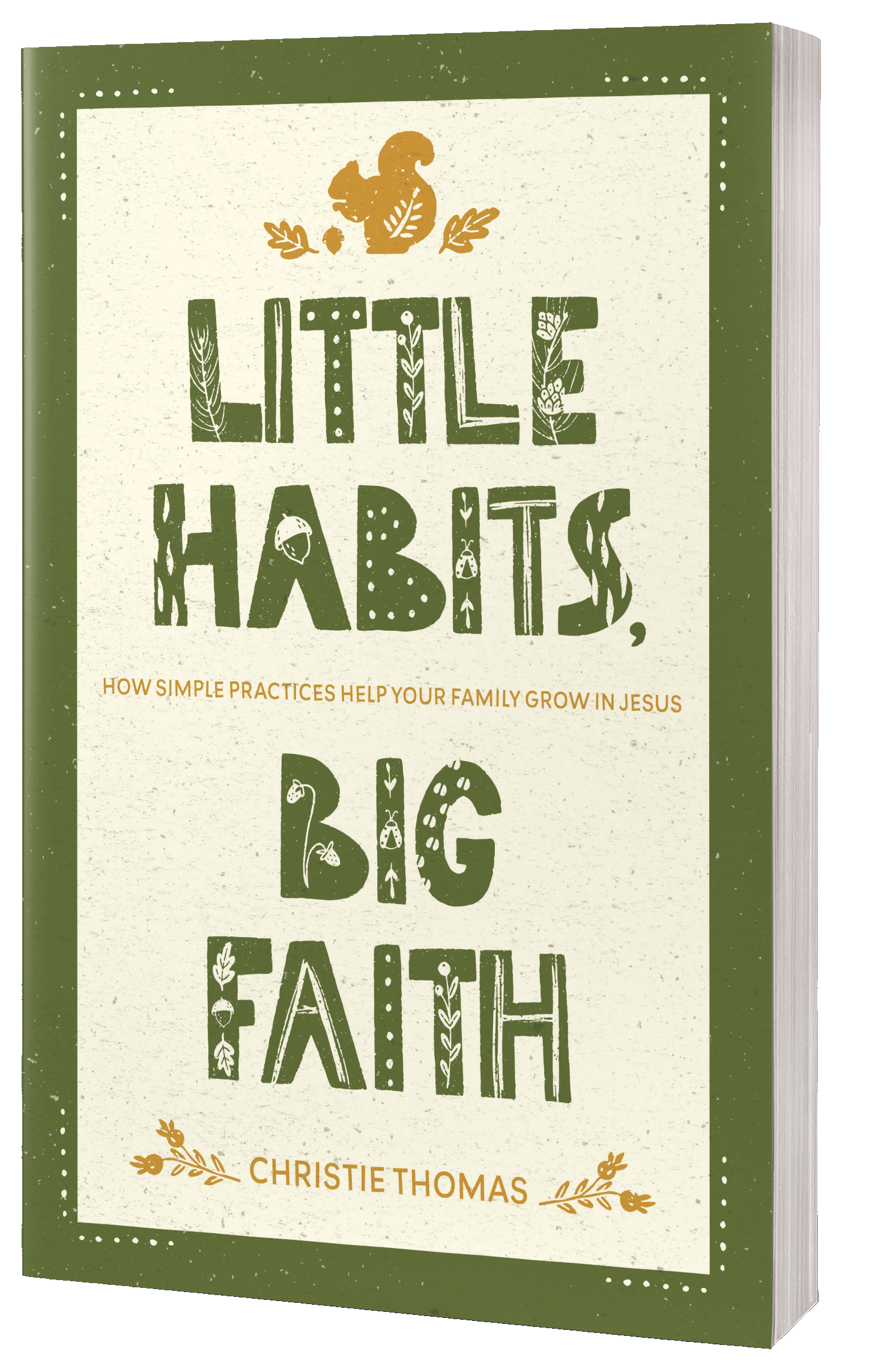I’d like to welcome Kristin Vanderlip today to talk about how to help kids process their emotions.
For years, I defined my life by its struggles—and I let them define me.
I watched as the color drained right out of my life. My life with Jesus didn’t feel full or abundant. Instead, I felt empty and weary. This was not how it was supposed to be.
So I leaned in and dug in and began to open myself up to deep soul work with Jesus, therapists, and mentors.
Out of this work came my first journal, Life Worth Living: A Daily Growth Journal, the pages of which both absorbed and acted as catalyst for growth and transformation.
As I learned and grew and wrote in my Life Worth Living journal, my kids (then ages 4 and 7) drew near and grew curious.
What’s that mommy?
What are you doing mommy?
What are you writing mommy?
Their questions were an invitation for me to share with them about the work God and I were doing together. Almost immediately they began asking me when I was going to make a journal for kids so they could have their own. Then the moms using my Life Worth Living journal were expressing their interest in having a journal like this for their kids too.
Here’s Why We Need To Help Kids Process Their Emotions
As a former teacher and a mom (and former kid myself), I understood that kids need tools, encouragement, and safe spaces to process their emotions, thoughts, and behaviors.
When it came to my own kids, I am aware of the hard things they face–like their dad deploying or enduring long separations from him, moving into a new house almost every year of their lives, changing schools, making and saying goodbye to neighbors and friends, and so on. I saw how those things affected them.
Often times my kids were unaware and unable to articulate what they were experiencing and feeling and didn’t know how to process or navigate it.
RELATED ARTICLE: 4 Uplifting Phrases For Kids Dealing With Loss
Teaching Children About Emotions is Hard, But Necessary
- How could I help them understand themselves?
- How could I help them name the emotions behind their behaviors?
- How could I empower and equip them to make good choices when they felt like they couldn’t control anything?
- How could I point them toward God and help grow their faiths through these hard things?
These were the questions I asked myself and was doing my best to formulate answers to as I parented.
I saw how others kids struggled too, some in deep and heartbreaking ways.
A couple of years ago friends of ours lost their child to suicide. Within the past year two acquaintances of ours shared of their children’s suicide attempts. Almost every week I’m having a conversation with a friend or neighbor about their child being bullied. We all know that suicide, bullying, anxiety, depression, and so on are prevalent issues affecting our kids today–even young children.
Bottom line, the world can be hard on our kids.
What can we do about it? How can we equip them to process and handle their experiences and live rooted in Christ?
I realized I could create a version of the journal I’d made and had been using in my own life for kids in an attempt to provide a tangible tool to meet this need I saw in front of me.
Enter: Living Life Well: A Daily Growth Journal For Kids
How The Journal Works With Kids
I’ve used the journal with my own kids (ages 5 and 8) sporadically as I’ve developed it, and they each finally received their own journals in the mail a few weeks ago.
- My first step was to read through the growth pages with them. We did it together, and I had my oldest read it out loud to us. They wanted to read it all and get started in their journal pages right away, but I wanted to slow them down because I knew if we covered it all in one sitting they would miss the essential faith foundations I wanted them to know. So we took it one growth page at a time, reading it, talking about their questions, and they would have fun coloring the pages.
- Throughout our days I would engage them in conversations about the scriptures and content we’d read.
- When we reached their daily journal pages, I found that for us it was easiest to incorporate it into our routine when we were already having conversations together—around the dinner table (but only writing it in after they’d finished eating) or before bed as part of our bedtime routine and prayer.
In the beginning it was very much conversational, sometimes it took a lot of time, and I really had to guide them, but as they’re getting used to the concepts and questions, they know what to expect, and it’s taking less guidance from me and less time.
I still ask and write the answers for my little guy, but I love the time connecting with him.
It’s not always easy or perfect! But that’s okay. I don’t want to push, so I gently guide and encourage, and if it’s just not working that particular day to actually write in their journal, that’s okay–plus we’re still having conversations.
For my oldest, if he’s having a rough time with something, maybe he’s upset about an argument with a friend or his dad being gone, or maybe he just needs to calm down and is in a bad mood, I give him some space to calm down in his room and send him with his journal. I don’t force him to use it ever, but it offers a way to ground and distract him and gives him the opportunity to focus him on something other than being stuck in his problem.
RELATED ARTICLE: The Best Mind-Trick Ever: How To Fight Anxiety With Gratitude
Why is Self-Regulation Important For Kids Anyway?
We, adults and children, often receive mixed messages about our emotions from culture, the Church, and even in our families.
Some of these messages can be harmful to us and to living out our faith. Again, for adults and kids, if we don’t understand our emotions, can’t name them, don’t feel safe to talk about them, etc., then our emotions can control us or overwhelm us, even if we try to shove them down or numb them.
This can hinder us and lead us into toxic patterns and behaviors.
When we can name what we feel and center our feelings in God’s truth, we aren’t held captive by our feelings, we can make choices that honor God, ourselves, and others…
…we can live well no matter what we’re feeling.
Hey friend, Christie here. I have been personally using the Living Life Well journal with my 10 year old, and it has opened up SO many wonderful conversations about his emotions. Rather than having it out with him in the heat of the moment, we’re able to come back to it later and reflect on it. It’s become a favorite part of his bedtime routine. This is a wonderful resource for our families!






0 Comments